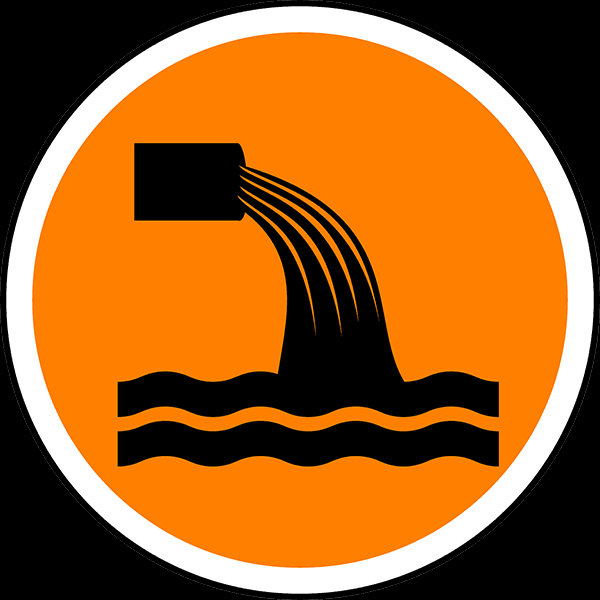The Ultimate Guide To Reclaim Waste
The Ultimate Guide To Reclaim Waste
Blog Article
The 20-Second Trick For Reclaim Waste
Table of ContentsThe 5-Second Trick For Reclaim WasteThe Ultimate Guide To Reclaim WasteReclaim Waste Fundamentals ExplainedEverything about Reclaim WasteReclaim Waste Can Be Fun For Anyone
Residential sewer waste refers to the waste and products from a household septic storage tank. The proper monitoring and disposal of domestic sewer waste require fluid waste to be transferred to a sewer treatment plant where the appropriate methods and devices are used to purify and dispose of waste.
Business waste often consists of potential hazards, such as flammable materials or a mixture of liquid and strong waste items, and requires a much more innovative and comprehensive disposal procedure. The disposal of commercial waste normally involves the filtering of waste prior to transport to ensure risk-free and appropriate disposal. Hazardous waste is created from byproducts and overflow of commercial procedures and manufacturing.
This kind of waste can not use the exact same sewer management transportation or processes as septic or industrial liquids. The industrial waste monitoring procedure calls for the assessment and testing of liquid waste prior to it undertakes the disposal procedure (liquid waste disposal). Runoff waste is the liquid waste that comes from runoff and excess stormwater in extremely inhabited locations or cities
Overflow waste can create contamination and flooding otherwise managed effectively. Find out more concerning sewage system cleaning and waste administration. Making certain proper waste monitoring can prevent disasters and reduce environmental damage. Both people in household setups and specialists in business or production industries can gain from understanding the procedures and laws of fluid waste administration.
Getting My Reclaim Waste To Work
Get in touch with PROS Services today to discover our waste monitoring and disposal services and the correct ways to look after the liquid waste you generate.
(https://www.imdb.com/user/ur191403836/?ref_=nv_usr_prof_2)Do you recognize what occurs to your water when you pull the plug, flush the commode or drain the washing machine? No? Well, it deserves understanding. This supposed 'wastewater' is not just a crucial resource however, after treatment, will certainly be released to our land, rivers or the ocean. Used water from commodes, showers, baths, kitchen sinks, laundries and commercial processes is referred to as wastewater.

water made use of to cool equipment or clean plant and devices). Stormwater, a type of wastewater, is drainage that flows from farming and city areas such as roofing systems, parks, yards, roads, paths and gutters right into stormwater drains, after rain. Stormwater moves without treatment directly to local creeks or rivers, ultimately reaching the ocean.
All About Reclaim Waste
In Queensland, a lot of wastewater is treated at sewage treatment plants. Wastewater is transported from residential or commercial sites with a system of sewage systems and pump terminals, referred to as sewerage reticulation, to a sewage treatment plant. Neighborhood federal governments build, maintain and operate most sewage treatment plants. Operators are certified under the Environmental Defense Act 1994 to release treated wastewater at an appropriate ecological requirement right into rivers.
The Division of Natural Resources suggests neighborhood governments regarding managing, operating and maintaining sewage systems and treatment plants. In unsewered areas, city governments may require householders to mount individual or household sewer therapy systems to deal with domestic wastewater look at more info from toilets, cooking areas, bathrooms and washings. The Department of Natural Resources authorises the usage of family systems when they are verified to be effective.
Most stormwater receives no therapy. In some brand-new class, treatment of some stormwater to get rid of litter, sand and crushed rock has begun making use of gross toxin catches. Wastewater therapy takes place in four phases: Gets rid of solid issue. Bigger solids, such as plastics and other objects mistakenly discharged to sewers, are gotten rid of when wastewater is gone through screens.
Wastewater then moves into large storage tanks where solids resolve and are removed as sludge. Grease and residue are skimmed from the surface area. Utilizes small living organisms recognizes as micro-organisms to damage down and remove remaining dissolved wastes and fine bits. Micro-organisms and wastes are included in the sludge. Eliminates nitrogen and phosphorus nutrients that could trigger algal blossoms in our waterways and intimidate aquatic life.
Little Known Facts About Reclaim Waste.
Nutrient removal is not readily available in all sewage therapy plants due to the fact that it requires costly specialist tools. It is coming to be much more typical in Queensland. Clear liquid effluent created after treatment may still contain disease-causing micro-organisms. If this effluent is launched into waterways such as rivers or the sea, the micro-organisms will eventually die out.

Many wastewater flows right into the sewerage system. Under the Act, local federal governments administer authorizations and licences for eco pertinent activities (Periods) entailing wastewater launches that might have a neighborhood effect.
Not known Details About Reclaim Waste
Or else, samples are considered lab evaluation. Often many tests are required to establish the degrees of each of the various pollutants such as oils, hefty metals and chemicals in water. Surveillance provides valid info concerning water top quality and can validate that licence problems are being fulfilled. The information gotten via monitoring offers the basis for making water quality decisions.
Report this page